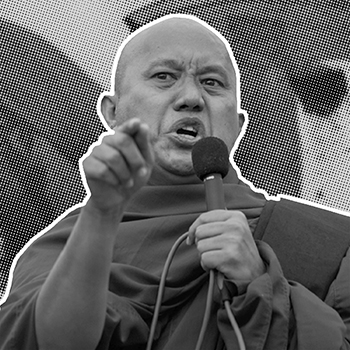Introduction: Ordering War Crimes in Reference to Iran

Just days after ordering a drone strike that killed a high-ranking Iranian military figure, Donald Trump sought to pre-empt any Iranaian retaliation by tweeting:
Trump later said:
“[We have] targeted 52 Iranian sites . . . some at a very high level & important to Iran & the Iranian culture, and those targets, and Iran itself, WILL BE HIT VERY FAST AND VERY HARD.”
“They’re allowed to kill our people. They’re allowed to torture and maim our people. They’re allowed to use roadside bombs and blow up our people. And we’re not allowed to touch their cultural sites? It doesn’t work that way.” — Donald Trump
Trump: Don’t Just Kill ISIS… Kill Their Whole Families.
Source video uploaded to YouTube by The Young Turks.
Markey Introduces Anti-War Crimes Resolution Denouncing Trump Threats to Attack Iran Cultural Sites.
Source video uploaded to YouTube by Senator Markey.
- Transmission of an unlawful command;
- By a superior to a subordinate;
- With awareness of a substantial likelihood of the crime being committed;
- Followed by the actual commission of the crime.
01

Transmission of an unlawful command;
02

By a superior to a subordinate;
03

With awareness of a substantial likelihood of the crime being committed;
04

Followed by the actual commission of the crime.
In the end, the attack on Iranian cultural sites was not carried out. Thus Trump can face no legal consequences for issuing what arguably amounts to an order to commit war crimes because the current law only criminalizes orders that are actually carried out.
PREVIOUS CASE STUDY
03 — Vojislav Šešelj | Bosnia-Herzegovina












